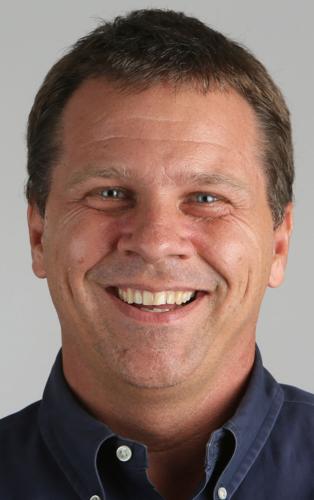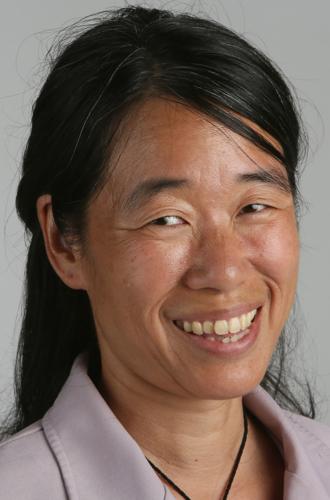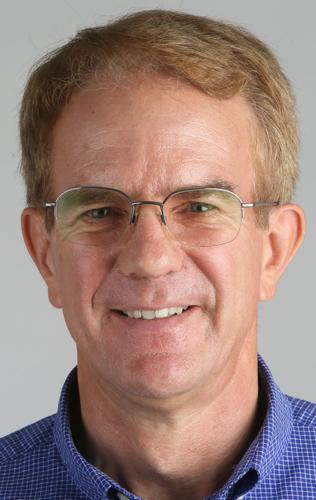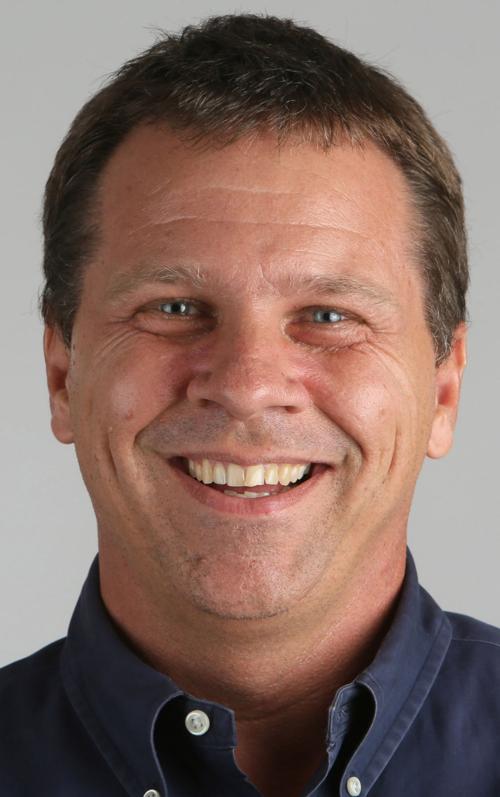Karin Uhlich casts a long shadow over the Ward 3 City Council race, specifically over the three Democrats vying for her seat.
In the weeks ahead of the Aug. 29 primary, the two men and one woman running are proving to be as multifaceted as the three-term councilwoman, who is not seeking re-election.
Each candidate has forged a strong cadre of local support as they stake out their economic and social policy stances. The primary winner will face independent Gary Watson in the November election.
Paul Durham
Attorney Durham has experience inside City Hall, serving for a year as the chief of staff for then Councilwoman Nina Trasoff and is well-known to many as the former treasurer of the county Democratic Party.
Durham has a law degree from Stanford University, but it is his MBA from the University of Colorado — and his two decades as a small-business consultant — that Durham talks about on the campaign trail.
Sitting at a midtown restaurant, Durham says he decided he’d run for Uhlich’s seat after the November election.
It took him weeks to come to terms with the election of Donald Trump, he said, and he opted to run for public office as the best way to serve the community.
“I really felt that I had to something more than I had been doing before,” Durham said. “Just about everywhere you look there is a person (in Tucson) being attacked by Donald Trump.”
Tucson, he says, needs someone strong and vocal to defend against the policies handed down from the Trump administration, and, to a lesser extent, the Legislature.
Knowing the players inside both City Hall and in the ward, he said, gives him an advantage over the other two Democrats. He believes he can hit the ground running if elected in November.
His friends and family were receptive to his decision to run, although one friend joked that Durham — an avid cyclist — must have fallen off his bike and hit his head.
Durham says the city needs to act on climate change if the Trump administration will not and says he wants to add solar to city buildings.
Durham has converted the home he bought from former Tucson Mayor George Miller to primarily use solar energy as well as to provide power for his electric car.
“I am convinced that I will make it a higher priority than either of the other two candidates,” Durham said. “It is not a campaign slogan; it is a way of life for me.”
Durham took an unpopular stance in a recent debate, refusing at a Pima County Interfaith Council event to commit additional funds to several city-funded programs.
It might have been the political equivalent of standing in front of a bus, but Durham instead got into the minutiae of city budgeting.
He said while he supports the current city funding for the Kidco after-school program and the JobPath skills-training program, he can’t support six-digit increases in city funding without understanding what the economic landscape will look like next year.
Durham answered a similar question about the city’s bus system the same way, saying he couldn’t make any promises about increases in future funding levels.
Felicia Chew
Felicia Chew, a teacher, flashes a quick smile at her 10-year-old son before sipping coffee at a small cafe around the corner from her Ward 3 home.
Chew said her son was the first person she talked to about her foray into professional politics.
A frequent companion to her at various meetings, Noah was quick to approve her running for city office, noting that he knows she wants to help more than just her students, friends and their neighbors.
The only criticism was concern that the single mother would be stretched too thin if she entered the race, but Chew says she opted against a new teaching contract so she could focus on the race, and, eventually, being a full-time councilwoman.
“I think they thought I was going to be teaching full-time,” Chew said.
Best known as a teacher for more than 20 years — most recently at Mansfeld Middle School — Chew has spent time volunteering as a victim’s advocate, advocating for local education issues with the Tucson Education Association and helping out at the Valley of the Moon.
She also served on the city’s Citizen Police Advisory Review Board.
Chew moved to Tucson in 2011, but was criticized by fellow Democrats for failing to register to vote locally until in 2015.
She countered that for a time after moving to Tucson, she didn’t like the divisiveness of politics and was focusing on some personal issues, disclosing that she had been a domestic-violence victim.
However, she was involved in the community as a teacher and became an advocate for domestic-abuse victims.
In a forum organized by Legislative District 9 Democrats, she admitted that she was a Bernie Sanders supporter and that she voted for Green Party candidate Jill Stein in the 2016 presidential election. She addressed the issue by saying she wanted to see more candidates involved in the political process, including at the national level.
A major focus in Chew’s campaign has been on improving public transportation, specifically Sun Tran.
At several meetings, Chew has stated she wants the city to consider new products for the city-owned bus line — including a single bus pass designed for entire families.
Such a pass would allow low-income families to get to work, school and the grocery store and also build what she sees as a new generation of frequent users of mass transit.
At least part of the city’s issue with the transit system is a drop in ridership, with young adults relying on other forms of transportation.
Chew has repeatedly stated she favors establishing a dedicated revenue fund for public transportation.
The issue, as she sees it, is the reliance on the city’s general fund to pay for the majority of the day-to day operations of Sun Tran.
She hasn’t identified how to pay for the system, whether it be a sales tax, property tax or another revenue source, but says she will work with bus riders union, the Teamsters and other stakeholders to find the best solution.
Tom Tronsdal
On the campaign trail, Tronsdal has often couched his answers as a nearly lifelong resident of Tucson, growing up in Ward 3 or relating some of his policies to the business he owns, Canyon Fence Co.
He doesn’t mention that he has a law degree or that he once worked with inmates in Leavenworth federal prison. He admits it was at the medium-security prison that he realized he didn’t want to be a practicing attorney.
“It takes a special person to do this, and that’s not me,” Tronsdal said.
Other notable jobs he has had included working at the Gaslight Theater while in high school and college, running the Planet Hollywood in New Orleans and as a contractor at Microsoft.
However, Tucson kept calling. After a few years working out of state, Tronsdal said his family wanted to come back to the Old Pueblo.
He bought Canyon Fence from a close friend who wanted to retire and is proud of the business.
Tronsdal has frequently talked publicly about paying every one of his 26 employees a living wage and benefits.
A key issue for Tronsdal is acting as a voice for other small-business owners.
He frequently mentions how the city essentially forced the Wildcat House out of business over issues with its parking lot. Years later, with the building vacant and the parking lot empty, the city offered incentives to a new business — Brother Johns BBQ.
At a recent debate, Tronsdal said the city shouldn’t be selectively picking businesses regarding incentives and code violations. Ideally, he argued, the Wildcat House could have remained open and a new restaurant could have opened its doors somewhere else.
Another priority for Tronsdal is continued support for public transit, noting his family regularly uses the city’s bus system.
“Like myself, and for many residents in the city, public transportation is not an option, it is a necessity,” Tronsdal said. “I will ensure that the public bus system remains affordable, safe and accessible.”
Recently, Tronsdal voice objections to the City Council’s decision to back a policy that would prohibit the city from investing in private companies that were involved with President Trump’s proposed border wall.
Tronsdal says he is completely opposed to the proposed border wall, but the council overstepped its bounds by looking to punish privately run local businesses.









